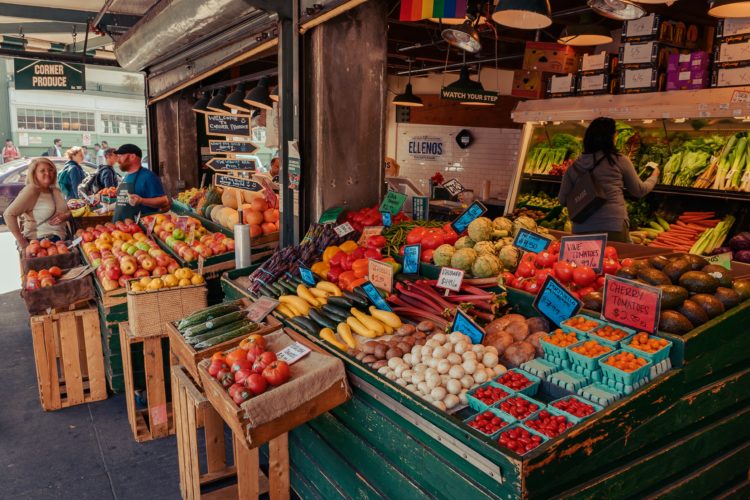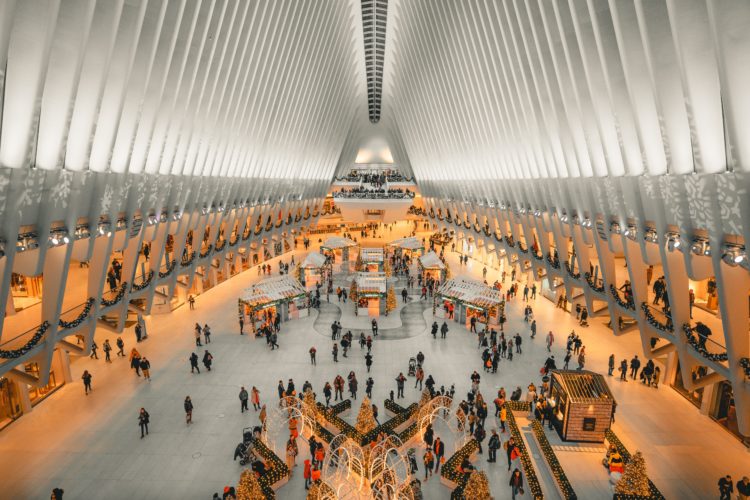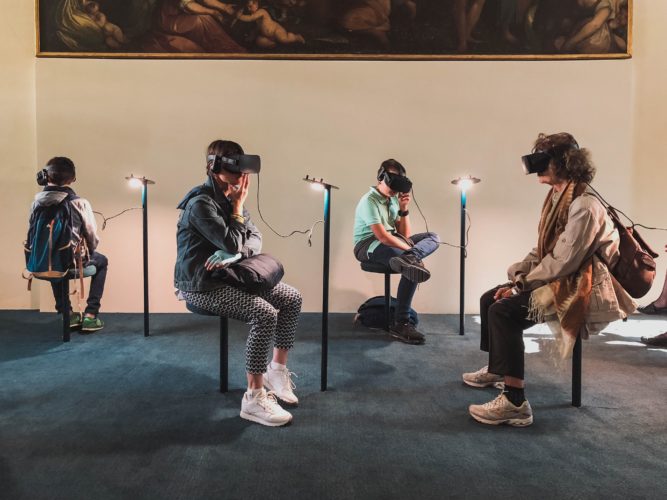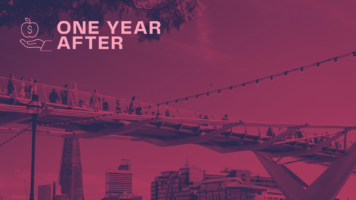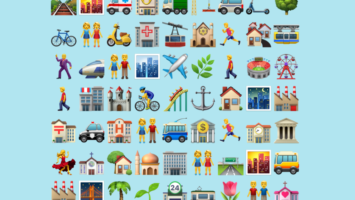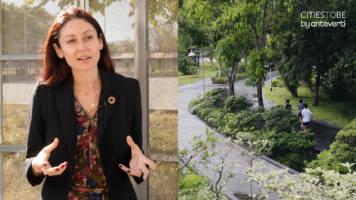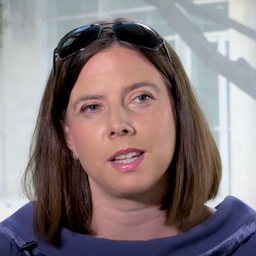Covid-19 and the future of cities: 6 trends that will change urban economies
By | 2020
This article is part of the series ‘Covid-19 & The Future of Cities’ – by anteverti
Editor’s note | This article was published in May 2020. For a more recent analysis on the urban impact of Covid-19, please check our new series ‘One Year After’: Urban Learnings from a Year of Pandemic — published in March 2021.
The present economic and social crisis emerge today as a bilateral and dramatic consequence of the health crisis caused by Covid-19. However, cities are still recovering from the major economic crisis of 2008, demanding even more resilience to advance towards the future.
Unlike the previous crisis, with its origin within the system itself, the current one is originated by an outside shock – the pandemic. This implies not only a demand shock, but also a major supply shock. Quarantine measures have brought disruptions to production and supply chains to the majority of businesses. On the demand side, and with the looming prospect of economic distress, consumers show lower confidence and prefer to save when possible.
The impact of the crisis in urban environments is even greater, as there is a higher risk of transmission of the virus due to a high-density population and the massive use of public transport. Nowadays, cities represent around 80% of the world GDP, and are home to more than half of the planet’s population. The well-being and the capacity to generate more opportunities for the society of the future will depend on how cities are able to respond to social and economic needs about to come.
In this uncertain context, what are the trends that will dominate the future evolution of urban economy? Here is our analysis.
1 | E-Commerce:
The Only Way to Survive
With stores temporarily closed, e-commerce has emerged as the only way to survive for local business. However, for those with no option to adapt to the digital world, the chances of surviving the crisis in the short term are significantly low. Some estimations state that between 10% to 60% of local retail stores in the city of Barcelona may not be able to reopen again after confinement. It is to be expected a similar impact on many other cities, accentuating what is known as the urban paradox: an increase in unemployment rates and in inequality in cities, usually more able to generate jobs and opportunities for people.
2 | Telecommuting:
The New Normal
Confinement measures have accelerated telecommuting, the new normal operation in many businesses. Although the adoption of households as workplaces is not the same for everyone (house it’s not equal to home), working remotely has become an effective tool for many companies, especially in the service sector. Now, entire staffs – from SME’s to large corporations – telecommute from their homes with no horizon of return to their office in the short term. This paradigm shift is bringing positive externalities with a reduction in traffic congestion and pollution. Nonetheless, it also reveals inequalities between workers: those reducing their exposure to the virus and those obliged to face health risks.
3 | Customers Demand Instant and Last-Mile Delivery
From the point of view of demand, mobile phones and internet-based platforms have allowed, a change in consumption habits. Cities allow scale advantages, favouring the proliferation of logistic platforms such as last-mile food delivery. Confinement represents a turning point for multi-generational consumer habits, encouraging online shopping from home. Moreover, the expectation of long-lasting effects of the coronavirus pandemic on citizens’ finances, will make them more demanding when buying a product or a service. People will prioritize local businesses able to offer instant delivery and KM0-fresh products at a good price. For instance, local markets are starting to sell online by collaborating with already existing retail platforms.
4 | New Applications for Products and Services
The crisis has also brought a change in the classic production-consumption model, allowing a more optimistic perspective, by promoting many innovative business initiatives. For instance, the shortage of personal protective equipment for health workers has led the automobile industry to adapt their production chain in order to produce respirators using engines’ windscreen wiper. Food companies are manufacturing masks by using transparent food packaging. Hotels are becoming the new hospitals and carsharing companies are providing cars to healthcare institutions and workers. Hence, demonstrating how circular economy can translate into rethinking, redesigning and reusing existing procedures, intellectual properties and components for completely new purposes.
5 | Virtual Experience Economy is Here to Stay
Social distancing is preventing citizens to attend urban leisure activities. This is accelerating the race towards the era of virtual experiences mainly through Augmented Reality (AR) and Virtual Reality (VR). Virtual experience economy is here to stay, bringing new opportunities to well stablished economic sectors such as tourism, one of the most negatively affected by the pandemic. Travel companies are launching curated virtual city guides, while cultural institutions are promoting their own free virtual tours during the confinement. Virtual experiences are also key for the retail industry, improving customer engagement by personalizing their experience in a digital space for instance bringing the opportunity to go virtual fashion shopping.
6 | Towards Covid-19 Free Certificates
The hospitality industry is facing a devastating economic downturn in cities. However, if they want to re-establish consumer confidence and safe feeling within their premises, significant measures will have to be undertaken. In this direction, many are pointing towards a Covid-19 Free Certificate, a sanitary certification, acquired only by fulfilling strict requirements such as personnel training in safe and health proceedings, cleaning protocols and informing clients on protection measures against coronavirus. In order to adapt to these new requirements, the sector will have to invest in technologies to advance towards low-touch experiences, take advice from health specialists and above all protect their employees.
WHAT COMES NEXT?
THE TIME FOR DIGITAL INNOVATION AT THE LOCAL LEVEL
The economic urban ecosystem will only be able to overcome the current downturn by applying innovative approaches, sharing knowledge and creating new synergies and alliances. The race towards technology and digital transformation will become key to survival.
Moreover, governments (at all levels) should play and are playing a key role by establishing economic mitigation measures such as promoting access to loans and financial support to local companies. After all, the present health crisis, will only accelerate changes already taking place, nothing started from scratch.
#Covid19 and the #FutureOfCities: 6 trends that will change #UrbanEconomies – by @anteverti Click to tweet!Want to keep reading about the urban impact of Covid-19?
Want to speak to our experts?
Drop us a line!
About the authors
Alba Soler worked as a consultant at anteverti from 2018 to 2021, where she collaborated in international projects such as the 2035 Research, Development and Innovation Agenda for Argentina, the European GrowSmarter initiative or the Inter-American Development Bank Gobernarte Awards. Alba's expertise is concentrated on strategic and operational consulting, with a focus on new technologies and on digital transition towards the improvement of people s quality of life. She previously coordinated projects for the Catalan Government and local stakeholders such as Barcelona Metropolitan Transport Authority or the Catalan Waste Agency. In 2021, she joined the i2CAT Foundation as a Public Sector Innovation Business Development Consultant and Expert in Digital Transition.
Alba Soler holds a degree in Political Science (Universitat Pompeu Fabra and University of Kent) and a Master specialized in Economic Analysis for Public Policies (BCN Graduate School of Economics).
Albert Tapia is an expert in urban agendas, local and regional economic development, urban and territorial strategies, governance, and public-private collaborations, with experience in future diagnostics and economic transformation.
Since 2020, he has been working as a consultant at Anteverti, where he has contributed to the development of the New Urban Agenda of Catalonia, the revitalization strategy for Barcelona's 22@ innovation district, and the Smart City strategy of Marrakech. He has also provided advisory services to numerous institutions on digitalization, energy, mobility, innovation, social inclusion, and governance, and has participated in European Horizon 2020 projects.
Additionally, Albert has experience in teaching at the University of Girona and has been involved in academic research at IESE. He holds a bachelor's degree in Economics and a master's degree in Smart Cities.


